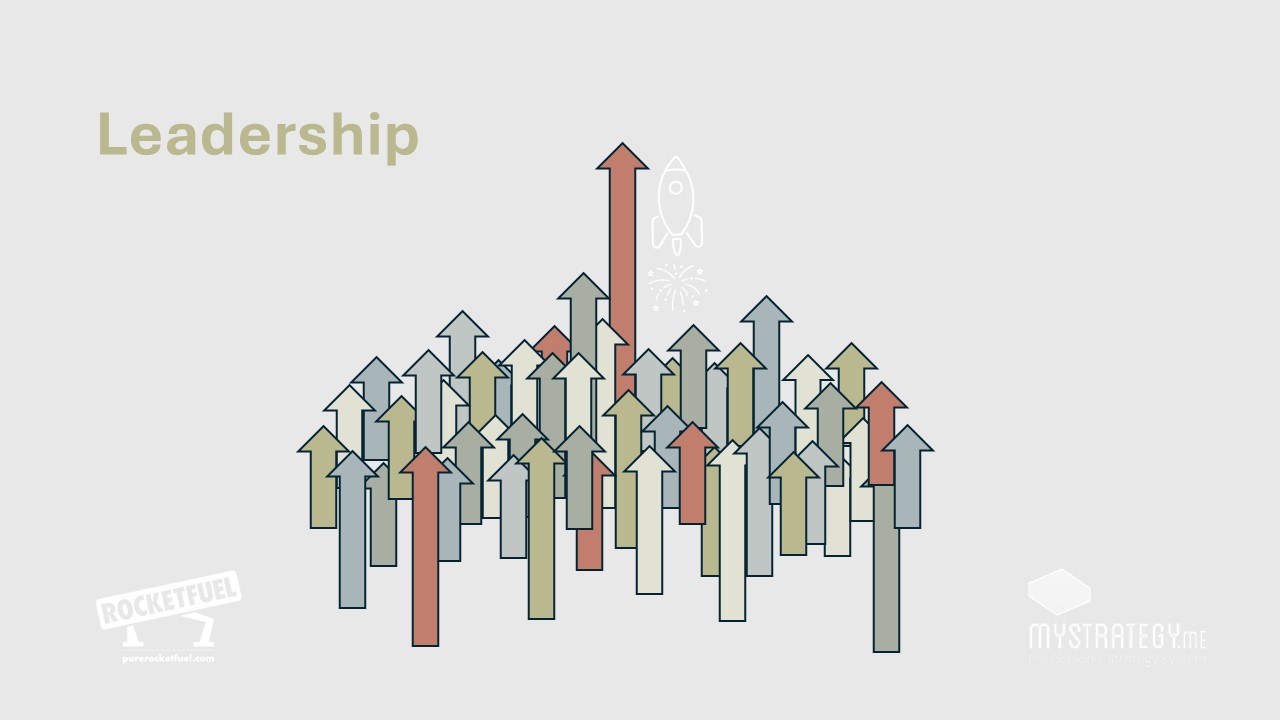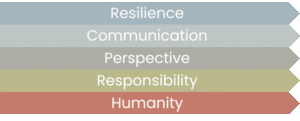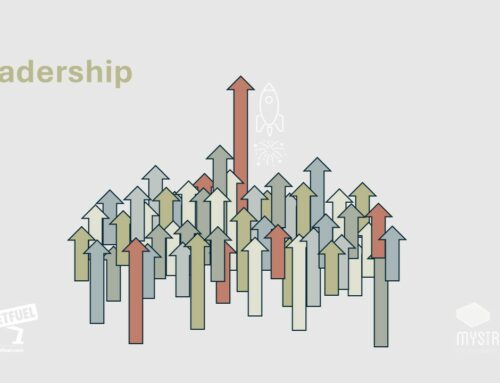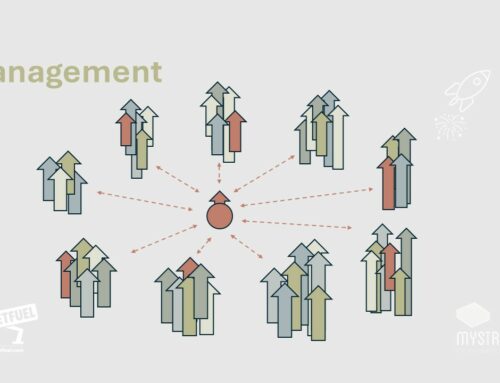
In the fast-paced arena of modern leadership, where change is the only constant, what is leadership and how can we build our skills, considers Leadership & Performance Coach, Davina Greene.
In organizations – where success hinges on the ability to inspire, influence, and innovate – the concept of Leadership looms large as a guiding beacon amidst the chaos of newness or change. The dream? A bustling marketplace of potential leaders where ‘stars’ emerge from the crowd, their presence commanding attention and their actions shaping the destiny of organizations and industries (maybe even countries and societies). Leadership isn’t a job title—it’s a dynamic interplay of character, competence, and conviction that propels individuals and organizations towards their goals with finesse and flair. Such stars can be hard to find.
What is Leadership?
Some well-known examples would be:
- “Leadership is the accomplishment of a goal through the direction of human assistants.” (HBR)
- “Leadership is a set of behaviors used to help people align their collective direction, to execute strategic plans, and to continually renew an organization.” (McKinsey)
- “Management is doing things right; leadership is doing the right things (Peter F. Drucker).
- “The action of leading a group of people or an organization.” (Oxford Dictionary)
All are fine definitions.
My own preferred definitions are as follows, bearing in mind that I’m as interested in the personal view as the organizational one:
Organizational Leadership: The ability to visualize an improved organizational position and engage people to get there.
Personal Leadership: The ability to visualize what you want in life and be humane, yet assertive, in carving out the necessary path.

Fig. 1: Personal and Organizational Leadership Definitions
How do you become a leader? Well, unfortunately there’s a little bit of magic involved, and therefore no guarantees – either people want to follow you or they don’t. You can’t control it, but you can certainly make a few mindful adjustments along the way to help your case.
The Components of Leadership
Self-Awareness & Self-Knowledge
Both are key foundation stones for leadership: the what you do and the why you do it.
Most readers of this article will be familiar with the concept of the “empty suit” and would dread to be viewed in such a way; if there’s something we don’t know, we generally want to become aware of it and focus upon it, bringing ourselves up to speed quickly, always viewed as being deserving of our position.
The concept of the Dunning-Kruger Effect reminds us that there are, for sure, people drifting around in our workplaces (or families, or friendship groups…or, commonly, political systems) who over-estimate their own abilities and can ultimately viewed as a bit “clueless” or “disconnected” for not having a key skill or understanding a key concept. A situation to be avoided, for sure.
Self-awareness and self-knowledge can be more difficult to achieve than they sound, because this ‘human vocabulary’ is all very familiar, all very ‘plain English’, and therefore lulls us into a false sense of security (see the concept of “fluency” – for example, in the book “Thinking 101” by psychologist and Yale professor, Woo-Kyoung Ahn).
Coaching is about the reflection upon, and application of, knowledge for personal change, so participation is a great indicator that you have the right steps in mind for eventual, or improved, leadership skill.
However, I don’t care how many training or coaching sessions you’ve sat in – I only care about whether, and how, you’re applying what you learned. That you’re operating with a growth mindset, and with positive intent. Whenever I work with individuals or teams, I find myself endlessly reminding them that comfort with the vocabulary is not an indication that it’s OK to switch off, to zone out.
I know that most people are nodding and smiling when I discuss, for example, Resilience or Accountability, because they know the word and therefore think they’re already applying everything they’ve ever heard in that regard – and are thinking solely of all of the Other People in their world who are committing offences in respect of various behaviors. Even if they’re engaged with me (I can be dramatic!), I know I’ve lost them in terms of subject-matter until I (semi-)jokingly stomp my feet or click my fingers and talk them through this ‘fluency’ pitfall I suspect they’ve fallen into.
Some get my point immediately; some, I know, don’t quite.
Interpersonal Awareness
True leadership is about relationships, however near or distant. You have an audience, whether they are 2 feet away and actively talking to you, or 2,000 miles away and aware of you only as a concept. The power of holding a particular position may help, but it’s not enough on its own.
Interpersonal Awareness is grounded in emotional intelligence, helping bring the humanity that followers require of their leader.
Leadership requires influence—the ability to inspire trust, build rapport, and foster collaboration among diverse individuals and teams. Strong interpersonal skill is needed for this. Like a skilled conductor leading an orchestra, leaders harmonize the talents and strengths of those around them, creating a symphony of creativity, innovation, and excellence. Through their words, actions, and example, leaders inspire confidence, empower others to take risks, and create an environment where everyone feels valued, respected, and heard. Optimism is key.
For influence, where possible, buy-in should be sought in lieu of the alternative: imposition, followed by battle. Active followership, and an appreciation of whether it exists in your case, is a critical point of awareness, so that you can begin to understand if you can have influence at all.
In addition, leadership is about integrity—the unwavering commitment to ethical principles, values, and beliefs that guide decision-making and behavior. Like a lighthouse standing tall amidst turbulent waters, leaders serve as beacons of integrity, guiding others towards the right path even when it’s difficult or unpopular. They lead by example, demonstrating honesty, transparency, and accountability in all their interactions, inspiring trust and confidence in their leadership. Any hint of backtracking and inauthenticity in relation to personal traits can pull the rug right out from under your leadership ambition.
Furthermore, leadership is about empathy—the ability to understand, relate to, and connect with the emotions, experiences, and perspectives of others. The finest leaders listen with empathy, communicate with compassion, and cultivate a culture of inclusivity and belonging where everyone feels valued, respected, and supported. They celebrate diversity, foster a sense of belonging, and champion the unique talents and strengths of each individual, inspiring loyalty, commitment, and engagement among their teams.
Therefore, if you haven’t heard of Situational Leadership or the existence of Management/Leadership Styles, it’s time to get acquainted. Different people, and different situations, need different handling – if you’ve decided to just be you, 100% of the time, your audience, and therefore influence, is probably already smaller than it could be. For me, there are only 4 core terms you need to get your head around, although some will tell you there are up to 20 styles (which, I find, only serves to confuse and cause over-filtering). Keep it simple, I say.
All in all, there is a world of vocabulary around human behaviors, too many to cover here. Whenever I am working with leaders – developing or established – I stick to 5 top-level categories of human traits and behaviors (into which many others then fall). Over 20 years of coaching, as an employee Manager or independently as a Coach, I find that the vast majority of conversations about interpersonal issues tie back to one of these 5 groupings (these categories are the foundation of the Traits & Behaviors section of my MyStrategy.me system, also).

Fig.2: My 5 core behavioral Leadership traits
Credibility through Acumen & Perspective
Too often, I meet people who want to skip to “leader” without really engaging in the nuts and bolts of learning about their function, company or industry first. I’m not the most detail-oriented person in the world, but I do have a realization that a grand plan that has no appreciation of the true detail of the business will not be received as a “grand” plan at all. Many unfortunately do not realize this, and others will (quite correctly) take joy at bursting their bubble, mid-speech, when the lack of reality in the vision becomes clear. I mean, would you follow someone who seemed naïve, ill-informed, or – even worse – indifferent? Think of the various global political leaders who gave confident speeches that made clear to the rest of us that they had no idea how an economy works: how safe would you feel under their rule?!
Visible application of learning by a leader is also worth its weight in gold. Nobody wants to feel that they could never be a leader, because a ‘leader’ is some sort of perfect human who innately knows everything they need to know, via some mysterious ‘moment’ that happened at birth or at some undetermined later point. Watching someone take in, process, and endlessly re-apply learning as they go is more inspiring than the robotic know-it-all, and a great piece of leadership-by-example for everyone else coming up behind them with leadership aspirations.
To me, the biggest benefit of all from strong acumen and the perspective that comes from experience is Resilience. Very little surprises someone who understands the world in which they operate. Therefore, it is very unlikely that they will look – or feel – “shook” when dramatic changes happen. This ability to navigate change, embrace uncertainty, and thrive in an ever-evolving landscape is critical for leadership.
Like a skilled navigator charting a course through stormy seas, leaders possess the resilience, flexibility, and resourcefulness to overcome obstacles and seize opportunities in the face of adversity. They anticipate change, embrace complexity, and leverage uncertainty as a catalyst for growth and innovation, inspiring others to embrace change with courage and confidence.
Add this perspective-based resilience to the resilience that comes from understanding oneself, and you’re almost (almost) invincible.
Strategic Drive
At its core, for me, leadership is about vision—a compelling and inspiring vision of the future that ignites passion, mobilizes resources, and galvanizes action. If you don’t have a vision towards which you’re shepherding people, then all of the self-knowledge and emotional intelligence in the world may serve as nothing more than a path to creating a “nice person”.
Like a master storyteller spinning tales of adventure and possibility, leaders paint a vivid picture of what could be, inspiring others to join them on a journey towards greatness. Of course, the vision and the story need to add up, or there will be much disappointment later, if people feel they were “sold a dud”.
Whether charting a course through uncharted waters or navigating the twists and turns of a shifting landscape, leaders provide direction, purpose, and meaning to those they lead, guiding them towards a shared vision of success.
When coaching individuals or groups, I summarize all of this into one simple diagram (see fig. 3), so that we can check against our progress and have regular reality-checks as to where each individual actually is in their progress (or, simply, to begin to deduce whether ‘leadership’ is really a realistic aim or interest).

Fig.3: My Leadership Development Coaching Model
Beware, of course, the leader who is all ‘marketing’, looking to have progressed all the way to that highly competent and well-rounded Leader status, but having actually skipped the bits where they were supposed to learn about themselves, other human beings in their potential audience, and/or the topic(s) in question. Again, the political world seems the easiest, most universal one to point to: the speech may be great, but who wrote it (in fact, how many different experts wrote it)? In a world of PR/Optics/Spin/Comms, does the “big speech” tell you anything at all about the person you’re about to vote for? Authenticity, Expertise and Self-Knowledge can be difficult to gauge, across the wall of marketing. This is where our responsibility as citizens comes in: to interrogate until we are convinced, not to let ourselves be led down a wrong path by a ‘shiny object’ of a leader. The same happens in the workplace. And in the workplace more so than in national or global politics, people are much more likely to believe that they themselves could do your job, making the road to trust, respect and therefore followership, even trickier.
Beware, also, the levels of attention you are putting elsewhere, on other people’s Visions and Strategies. The modern age, and our easy access to social media apps in particular, mean that our focus and energy are often spread thinly, and not across our own lives and thoughts. Are you addicted to inspiration, rather than driving ahead in your own lane? Worth a check.
Finally, beware group-think, where leadership can begin to die in the hands of Yes-people and people working to their own, or a small group’s, benefit, through a lack of critical thinking and an ever-embedding preference for “not rocking the boat”. A fiercely impressive strategic drive in the early stages can wither fast, and it takes a strong leader to spot that and work against it.
In Conclusion…
What is Leadership?
Leadership is a multifaceted and dynamic concept. It is about Self-Knowledge, Interpersonal Skill, Acumen and Perspective—all applied, and all working in harmony to inspire, empower, and transform individuals and organizations. Like a symphony conductor leading an orchestra, leaders guide their teams towards a shared vision of success, inspiring greatness and leaving a lasting legacy in their wake. Likewise, outside of the workplace, leaders push forward and achieve their desires through sensible and humane engagement of, and adaptation to, the people whose help they need along the way.
I often think it’s unfortunate that the first promotional role title we acquire tends to be “Team Leader”, as it carries such lofty expectations if you put your focus on the word ‘Leader’. That said, it’s a prime opportunity to have that conversation with the job-holder and begin to coach in order to reach that level of skill. The essence of leadership lies not in the title one holds or the power one wields, but in the impact one has on the lives of others and the world around them; the earlier this becomes part of the conversation, the sooner we’ll see if the potential to lead is really there.
Interested in investing in your own personal – and personal strategy – development? Check out www.MyStrategy.me!
Share This!
About the Author




